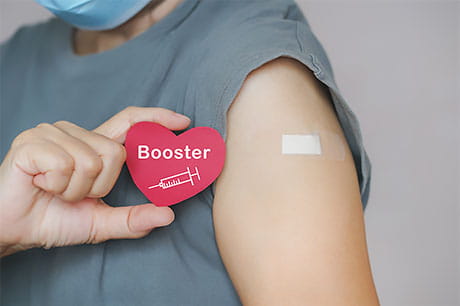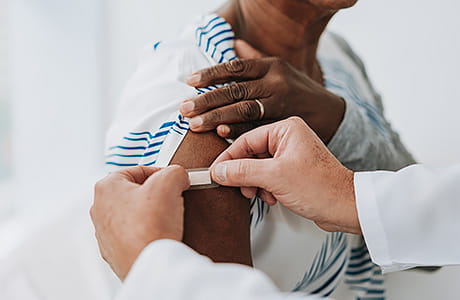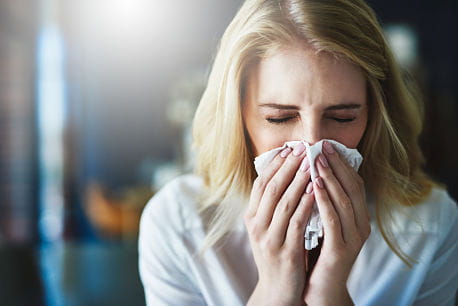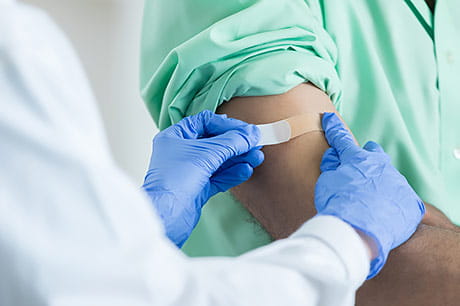How to know if you need a COVID booster shot
Plus, know the difference between a booster shot and a third dose.
As more and more people are vaccinated against COVID, you may have some questions. Do you need a booster shot? How is a booster different from a third dose?
Find out exactly what you need to know to protect yourself from COVID-19.
What’s the difference between a third dose and a booster shot?
A third dose of the vaccine and a booster shot work in the same way — by providing added protection against a virus. However, there is a key difference between them.
A third dose is given to people who are moderately to severely immunocompromised and whose immune systems may not have built up enough protection with the first two doses of the vaccine.
On the other hand, a booster shot is given to people several months after their primary vaccine series, which may include a third dose for immunocompromised people, to “boost” and maintain their immunity over time.
“A third dose should be given to people no sooner than 28 days after the last dose in their primary series,” says Dr. Stanley Martin, infectious diseases specialist at Geisinger.
But when should you get boosted? It depends on which vaccine you initially had and your age:
- Pfizer: Age 12+ and 5 months after your second dose
- Immunocompromised: Age 12+ and 3 months after your third dose
- Moderna: Age 18+ and 5 months after your second dose
- Immunocompromised: Age 18+ and 3 months after your third dose
- Johnson & Johnson: Age 18+ and 2 months after your single dose (should be either Pfizer or Moderna vaccine)
Some people are eligible to receive two boosters. For the latest information on who should get a booster and when, visit the CDC’s website.
Who’s eligible for a third dose?
Anyone age 5+ who is moderately to severely immunocompromised and has had two doses of either the Pfizer or Moderna COVID vaccines should have a third dose. Immunocompromised people age 18+ who received the Johnson & Johnson vaccine should also have an additional dose, but it should be either the Pfizer or Moderna vaccine.
You’re eligible for a third — or additional — dose if you have received the Pfizer (age 5+), Moderna (age 18+) or Johnson & Johnson (age 18+) COVID vaccine and have:
- Been receiving active cancer treatment for tumors or cancers of the blood
- Had an organ transplant and are taking medicine to suppress the immune system
- Received a stem cell transplant within the last 2 years or are taking medicine to suppress the immune system
- Moderate or severe primary immunodeficiency (such as DiGeorge syndrome, Wiskott-Aldrich syndrome)
- Advanced or untreated HIV infection
- Active treatment with high-dose steroids or other drugs that may suppress the immune response
Who’s eligible for a booster shot?
Booster shots are approved for anyone age 12+ who received their primary one- or two-shot series of the Moderna, Pfizer or Johnson & Johnson COVID vaccines.
“Moderately and severely immunocompromised people age 12 and older may also receive a booster shot, but only after their third or additional dose of a COVID vaccine,” says Dr. Martin.
How do I schedule my third dose or booster?
You can schedule your COVID-19 vaccine through MyGeisinger. Don’t have a MyGeisinger account? Call 570-284-3657. You can also check the PA DOH website or local pharmacies to see if appointments are available elsewhere in your community.
“Another dose of a COVID vaccine can help boost your protection against COVID-19 and its variants,” says Dr. Martin.
Next steps:
Schedule your COVID-19 vaccine or booster appointment
Should you deliberately catch COVID-19?





